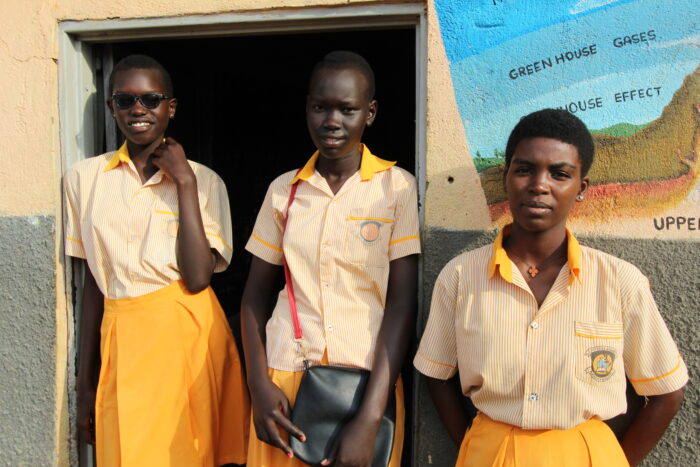Creating a Safe and Enabling Learning Environment for Girls
July 7, 2022 1:42 pmNational Girls’ Education Day was designated as 7th July in 2004 by the late Dr John Garang de Mabior to keep girls’ education on the Government of South Sudan’s agenda. On that day in 2004 he lit a candle and said, “Let’s keep the candle burning for girls’ education”. Every year on this day we aspire to continue his legacy by highlighting the unique barriers girls face in gaining an education in South Sudan, celebrate progress made and take stock of what more can be done.

Great strides have been made in getting girls into classrooms in South Sudan, but more needs to be done.
This year, we celebrate National Girls’ Education Day under the theme: ‘’Creating a safe and enabling learning environment for girls’’.
Girls across the world have been exposed to increased risks, more than ever due to the COVID-19 pandemic. Experience shows that crises often disproportionately affect girls and young women. In South Sudan, girls, particularly in rural areas and disadvantaged states, show lower educational attainment than boys, and are at high risk of early and forced marriage (Plan International, 2022).
The governments of the UK, Canada, USA, and EU are helping to address these challenges through our Girls’ Education South Sudan (GESS) programme. GESS is working collaboratively with the Ministry of General Education and Instruction (MoGEI) to ensure that girls’ education in South Sudan is prioritised, with the aim of improving their enrolment, retention, and completion in primary and secondary schools.
To date, GESS has supported more than 880,000 girls with cash transfers to help them overcome financial barriers to education by allowing them to purchase essential items such as uniforms, sanitary products, and transport. Over 3,500 primary schools and 230 secondary schools received capitation grants to help supplement running costs and improve the learning environment for both girls and boys. GESS is also leading change in the area of behaviour change in the areas of girls’ education and disability inclusion. In partnership with the MoGEI, GESS is collecting enrolment data through pupil administration registers, identifying learners with a disability, which can contribute towards more targeted support.
In the last quarter of 2020, GESS together with MoGEI, carried out a pregnancy mapping exercise to understand the impact of the COVID-19 related school closures on learners. As the lockdown progressed, reports of girls becoming pregnant were rising. The mapping carried out in 2,404 schools established that 4,780 learners were pregnant in 2020.
As schools reopened for candidate classes, there were reports of pregnant and nursing learners being denied their right to sit for examinations and to continue with their education. In response, MoGEI issued a landmark circular in January 2021, instructing school management and teachers to allow pregnant and nursing learners back to school to sit their examinations and to complete their education.
More positive progress has been made, with girls’ enrolment rising from 38% in 2014 to 48% in 2021. Major challenges remain however, with more than half of South Sudanese children still out of school. Akuja de Garang, the Team Leader for Girls’ Education South Sudan (GESS) said, “Whoever you are, you can play a role in influencing positive change – at home, in school, church, mosque, place of work, and in the community to get buy-in and leverage positive action for women’s and girls’ education. Now is the time to fight for our girls”.
As we move towards the twentieth anniversary of National Girls’ Education Day in South Sudan, we call upon all stakeholders to keep girls’ education at the top of the agenda. We must stand up, as Dr Garang de Mabior did. Let’s create a lasting positive change in the education of the next generation of South Sudanese girls so they can effectively contribute to transforming our nation.
Tags: Development, European Union, Global Affairs Canada, National Girls' Education Day, South Sudan, UKaid, USAID
Categorised in: GESS Events, Girls' Education
Comments are closed here.